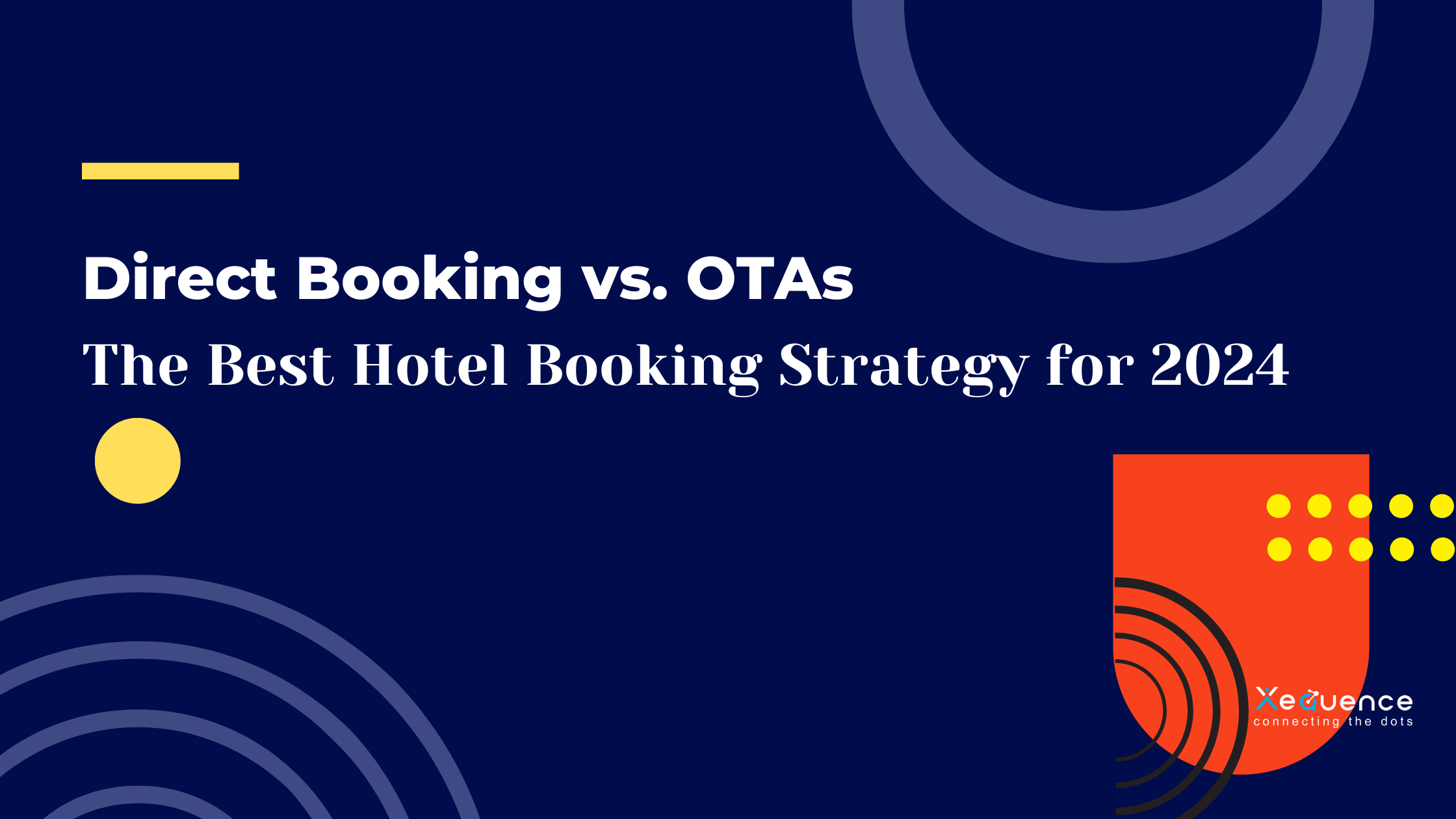Direct Booking vs. OTAs: The Best Hotel Booking Strategy for 2024
- October 8, 2024
- Rajib Kar
- Chatbot, Guest Experience, Hotel Management

Which is Better for Hotels in 2024: Direct Bookings or OTAs?
Anyhow, there is some complexity to the hotel distribution environment. Additionally, a lot of change has occurred on this front in the last ten years. Many hotels have also started to promote direct bookings in place of OTAs, having previously placed little value on them. Accommodation providers are in a tough spot because of the long-running dispute over “OTA vs hotel direct bookings.” Striking a balance between the two is proving to be difficult. This blog will examine the benefits and drawbacks of direct bookings against OTAs in an effort to determine which is preferable.
What is an OTA booking?
A digital marketplace that lets travelers look for, evaluate, and reserve hotels, flights, and rental cars is known as an online travel agency. If most business travelers utilize specialized corporate booking engines known as travel management companies to make their reservations, OTAs usually handle bookings for leisure passengers. To sell available rooms, a hotel can use an OTA as a booking channel.
OTAs allow owners of rental properties, ranging from single-bedroom apartments to full houses, to advertise their available properties. The biggest online travel agencies that make it easier to rent short-term accommodation are VRBO and Airbnb. Through the booking systems of these companies, tourists find as well as reserve their lodging; this is known as an OTA booking.
What is a direct booking?
When customers book directly with your hotel—through your website, social media accounts, phone number, or email—they are making a direct booking. Utilizing a hotel booking engine that is user-friendly and reduces website abandonment is crucial for handling these types of reservations. Optimizing these kinds of reservations is crucial to boosting your hotel’s revenue, and it is more likely to be accomplished if the booking process is quick and easy.
Promotions on social media and search engines, word-of-mouth, reviews, and other means of assisting prospective visitors in finding you are the main drivers of direct reservations. When customers make direct reservations, your hotel can better tailor and target future loyalty efforts, as well as easily maintain the relationship. When visitors make reservations through direct channels, commissions are also not due.
OTAs vs Direct Bookings: Key differences
Allowing visitors to quickly locate and reserve a stay at your hotel is the common goal of both online travel agencies (OTAs) and direct reservations, but the methods by which this can be done differ significantly. It can be very expensive to rely on OTAs as your main source of bookings, but they are a fantastic temporary and supplemental option to your hotel’s own booking engine. The worth of each booking channel should be compared.
Opportunities for alternative revenue
Upselling can be accomplished through OTAs, but the best method to do so is with your own booking engine, which allows you to showcase your extra services and goods at various stages of the booking process. You’ll have a better chance of generating extra income if your descriptions and photographs are appealing.
Visibility and comparison
Two domains where competing with an OTA is challenging are visibility and reach. First of all, it is challenging for a small resort to match their enormous advertising expenses. A lot of prospective visitors frequently check for hotels on the internet to get a sense of availability and cost before making a reservation. Nearby travel agencies are very popular since they allow you to use them as a platform for comparison shopping.
Building relationships
Forming a relationship with guests before to their arrival can be more difficult when they make their reservations online. For this reason, personal information of guests is frequently concealed by OTAs. When visitors make direct reservations, however, the hotel has access to their personal data, which facilitates preparing them for their arrival by providing them with comfort and warmth. This presents an opportunity for you to foster loyalty and further customize the experience.
Which is better for hotels?
There are often more variances than similarities between hotel direct bookings and OTAs. Although both can increase income, enhance visitor satisfaction, and help you establish your hotel’s brand, direct bookings are unquestionably better for hotels overall because they give you access to data. You may gather insightful information, improve the buyer journey, and tailor the experience with the aid of customer data. Since direct booking generates the highest profits and best margins, in an ideal world hotels would exclusively accept direct bookings. Seek strategies for growing your hotel’s direct bookings.
Conclusion
For revenue management and overall performance to be optimized, hotel direct bookings and OTA bookings must be balanced. While direct reservations promote customer loyalty, offer superior profit margins and control over pricing, OTAs increase worldwide exposure and draw in new business, particularly during periods of low demand. Revenue can be increased and visitor experiences can be enhanced by combining the two channels in a strategic way. A long-term competitive advantage in the hotel business is derived from ongoing analysis and strategy modifications.
Recent Posts
Newsletter
Get regular updates on data science, artificial intelligence, machine
You may also like

AI Travel Assistants: The New Personal Travel Planners

5 Things an AI Travel Assistant Can Do in Seconds

How AI Hotel Chatbots Reduce Operational Costs?




